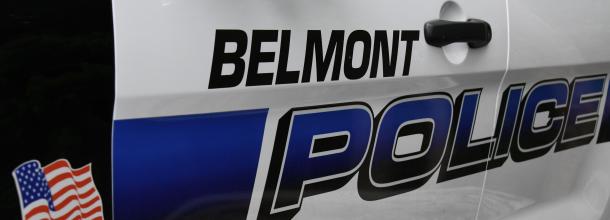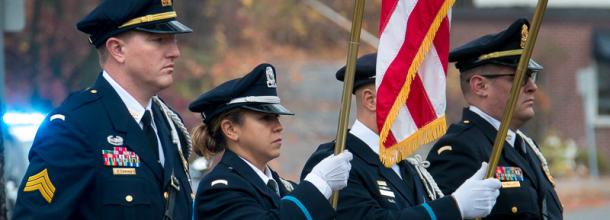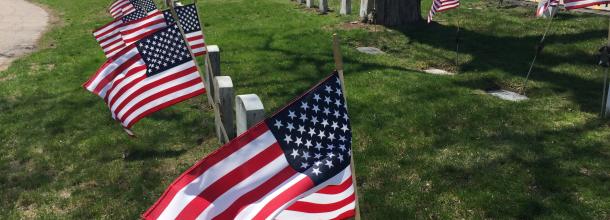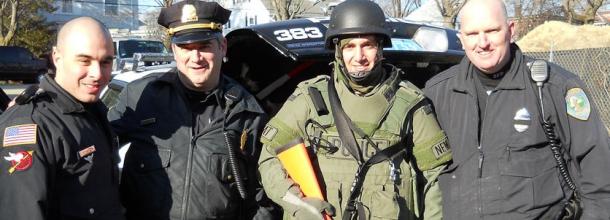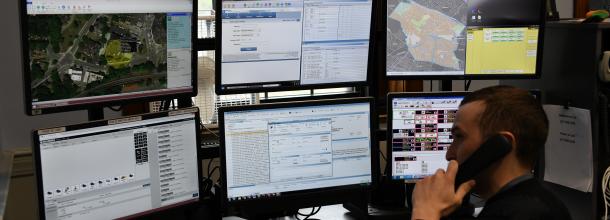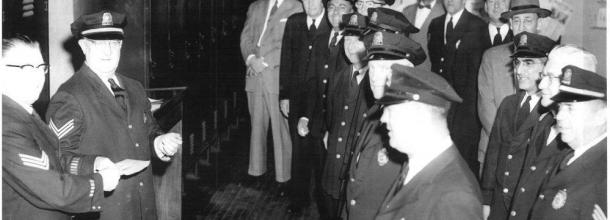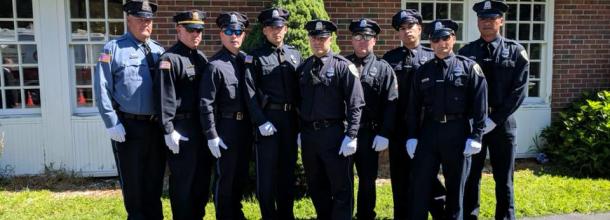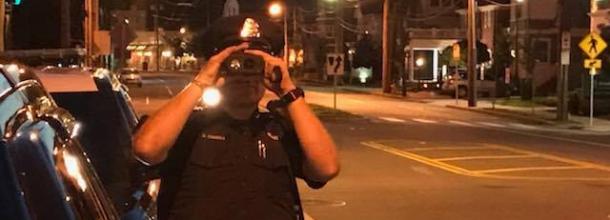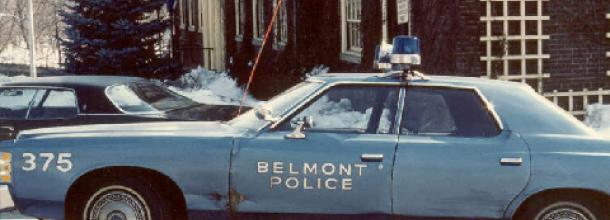Patrol Division
Like all local police departments, the Belmont Police Department devotes by far the largest share of its resources to patrol operations – the 24-hour per day commitment to having enough police officers on duty to get help swiftly to people in some sort of crisis. Except for fires, the special role and authority of the police officer makes him or her the primary actor when “something has to be done right now or someone will get hurt.” The situations that patrol officers must be prepared to address on the spur of the moment are numerous. Motor vehicle crashes, domestic violence, mental health disturbances, medical calls, dangerous or disorderly drunken behavior, burglaries in progress, and robberies are just a few of the categories of calls which officers must attend to rapidly, and within each category a wide range of complexity and severity is found. The past few years have seen every variety of violent crime, including murder, occur in Belmont and the patrol officers are the first to arrive.
When not responding to matters that require immediate attention to prevent death or bodily injury or to restore public order, patrol officers handle the more routine business of beginning investigations in to crimes reported after the fact. Larceny, hit-and-run crashes, vandalism, underage drinking, and identity fraud are among the offenses which patrol officers typically will take reports on. If patrol officers can complete the investigation and apply for criminal charges without further investigative assistance, they are expected to do so. Patrol officers also fill in on school crossing posts and get called to disputes between neighbors, problems with juveniles, animal complaints, parking problems, message deliveries, and noise complaints. In addition, officers serve arrest warrants, court summonses, and restraining orders.
Patrol officers are also the first line of enforcement of the state’s motor vehicle law in Belmont. Some offenses directly involve safety, such as drunken driving, speeding, and stoplight violations. Other offenses involve financial or administrative accountability, such as maintaining automobile insurance, keeping a car registered, or updating an address with the Registry of Motor Vehicles.
On top of all these duties, patrol officers are expected to become familiar persons in the community. Patrol officers are the largest and most publicly recognizable group of police officers, which makes them the face of community policing. Uniformed officers will be found reaching out to members of the community, building the trust between citizens and the police that will ensure the public’s willingness to provide the police with information when needed while the officers commit to using the resources of the police department to address community problems.
The Patrol Operations Bureau is headed by a captain. The lieutenants in charge of the three patrol shifts report to the operations captain as does the sergeant in charge of the Traffic Division. Among his other duties, the captain also conducts the department’s professional standards investigations and, on behalf of the police chief, manages the department’s efforts to improve department policies.
Patrol Operations Supervisors
| Name | Division | Number |
|---|---|---|
Patrol Supervisor | (617) 993-2575 | |
|
Lt. Darin Demagistris
| Day Division | (617) 993-2505 |
Night Division 1 | (617) 993-2505 | |
|
Lt. Christopher Donahue
| Night Division 2 | (617) 993-2505 |

